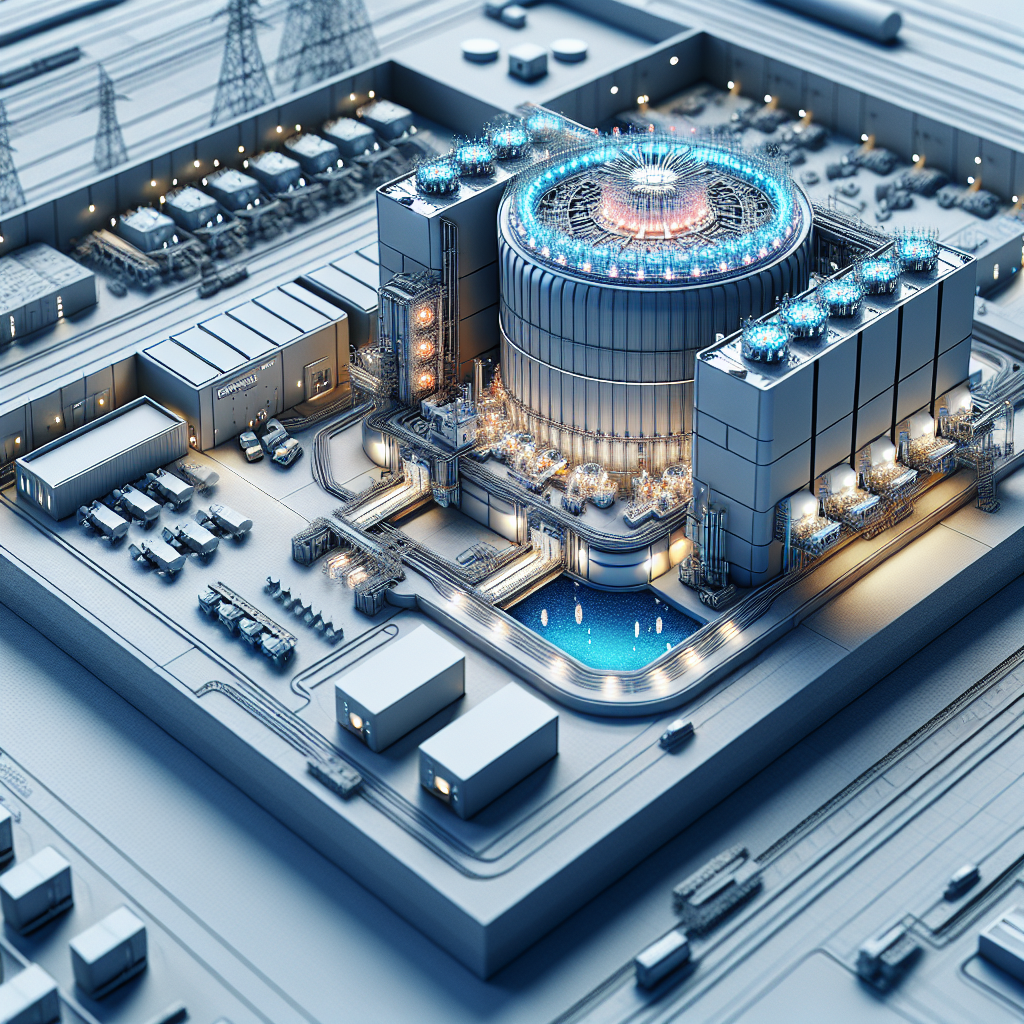Tech Giants Eye Small Modular Reactors to Power Data Centers, AI, and Cryptocurrency Growth
Advanced nuclear technology offers a pathway for decarbonization and reliable power to meet soaring energy demands of the digital era

With energy consumption expected to rise sharply due to the expanding demands of data centers, artificial intelligence (AI), and cryptocurrencies, major tech companies are now exploring small modular reactors (SMRs) and other advanced nuclear technologies to power their future operations. These technologies offer a potential solution for meeting both growing electricity demands and ambitious decarbonization goals, presenting a new commercialization pathway for SMRs in regions where they have yet to emerge.
Data centers, which house vast servers essential for storing and processing digital information, are a primary driver of electricity demand. In 2022, these facilities consumed an estimated 460 terawatt-hours (TWh) of electricity worldwide, with consumption projected to exceed 1,000 TWh by 2026 — nearly equivalent to Japan’s total electricity usage. Alongside AI and cryptocurrency, data centers accounted for 2% of global electricity consumption in 2022, a figure that the International Energy Agency (IEA) expects may double by 2026. Companies such as Amazon, Microsoft, Google, and Meta alone consumed a collective 72 TWh of electricity in 2021, more than twice their consumption four years earlier.
As global power needs grow, tech companies are also under pressure to decarbonize their operations due to both regulatory mandates and their own sustainability commitments. While renewable energy sources like wind and solar play a crucial role, tech giants are looking to advanced nuclear reactors, such as SMRs, for a dependable and low-carbon source of power that can provide firm, dispatchable electricity to support operations around the clock. According to Aline des Cloizeaux, Director of the IAEA’s Division of Nuclear Power, SMRs and similar technologies “are well suited to play a key role for these companies, providing the flexible and reliable low-carbon energy they need to run their operations.”
Several regions are already feeling the effects of surging data center energy demands. In Ireland, data centers used 5.3 TWh of electricity in 2022, which accounted for 17% of the country’s total power consumption. The IEA forecasts that, by 2026, Irish data centers could consume up to 32% of the nation’s electricity. In the United States, rising data center demand is particularly notable in the northeast, while in China, data center energy usage is expected to double by 2030.
In response, Google and Microsoft recently released reports evaluating advanced nuclear power’s role in meeting their decarbonization goals. “We know that wind, solar, and batteries will be critical in order to decarbonize our energy consumption. But we also need firm, dispatchable, carbon-free electricity technologies to cost-effectively decarbonize our electricity consumption,” says Devon Swezey, Senior Manager in Global Energy and Climate at Google. Similarly, Microsoft’s recent policy brief advocates for research and development, testing new nuclear technologies, refining regulatory frameworks for safe deployment, and leveraging AI in the management of grid and energy systems.
At the same time, SMR and microreactor vendors are recognizing the potential for partnerships with corporate clients to overcome deployment barriers. Unlike traditional nuclear plants, SMRs are smaller, factory-built, and expected to be more affordable, with reduced capital requirements and shorter construction times. Bret Kugelmass, CEO of Last Energy, a U.S.-based microreactor vendor, points out, “Packaging nuclear in a way that’s smaller — micro scale, in fact — and modular is the key to making it affordable for private industry.”
Beyond the tech industry, other sectors such as petrochemicals are also considering SMRs to fulfill their high-temperature heat and power needs while reducing emissions. For example, Dow Chemicals is exploring SMR deployment to power its operations with clean electricity and high-temperature heat. This could pave the way for industry-funded nuclear projects that rely on private capital, speeding up deployment while allowing businesses to realize the economic and environmental benefits of advanced nuclear at scale.
For major tech players like Google, SMRs represent an opportunity to not only support their own 24/7 clean power ambitions but also to advocate for the broader adoption of these technologies. “We hope to work with other clean energy buyers to scale these technologies in the coming decades and achieve 24/7 clean power, not just for Google but for everyone,” says Swezey.
As the demand for reliable, clean power grows, SMRs and advanced nuclear technologies are positioned to play a pivotal role in enabling tech and other energy-intensive industries to meet their future energy needs sustainably, marking a new chapter for nuclear energy in the age of digital transformation.
- READ MORE ON:
- data centers
- artificial intelligence
- Small Modular Reactors










